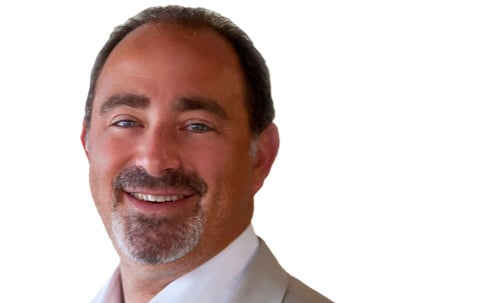WHITE PLAINS—Thanks to the efforts of local officials and savvy commercial real estate professionals, Westchester County has become a major hub for biotech and healthcare companies in the Northeast. That's why the sector was the main focus at RealShare Westchester County, held here yesterday.
With a collection of four experts, the opening panel specifically discussed the explosive growth the county's experienced in the medical and biotechnical fields. Moderator Al Gutierrez, an executive managing director at Colliers International, acknowledged that while there's still a long way to go in terms of economic development, “everyone is aware of the possibilities.”
With the large roadway system, the mass transit via the three rail lines and new bus system, “the foundation exists,” he said. “That's why medical groups are clamoring for the market.”
The area's existing medical groups are expanding. Particularly of note is a 300,000-
square-foot expansion by Regeneron Pharmaceuticals, which will bring the firm's total occupied space in the County to over one million square feet. That's a big leap from its humble beginnings 25 years ago as a two-person start-up operating out of a studio apartment on Manhattan's Upper East Side, according to Joanne Deyo, VP of facilities for Regeneron.
The firm moved to Westchester soon after hiring its third employee, she explained. Not only did its CEO live there and it was in close proximity to a number of major medical institutions, but we “also recognized that a lot of big companies—like IBM—were thriving.
Likewise, Acorda Therapeutics, which caters to people suffering from neurological disorders,moved from New York City to Westchester in 1998, according to chief of business operations David Lawrence. The firm, whose CEO also lives in Westchester, expanded to Ardsley in 2012, and now has 400 employees in about 30,000 square feet. It's currently looking to take an additional 25,000 square feet by the fall.
Meanwhile, investor Mark Ellman, president of Celestial Capital Group LLC, told of why his firm is focusing on Westchester. Before founding Celestial, he explained, “I was a partner at two other real estate firms. I spend my whole life on planes. So my motto for the firm when we look at properties is that if we can't get to it within an hour and a half, we're not going to do it.”
Having done some value-add deals, Ellman found himself involved in medical space by accident. “In 1999, a very close friend called me and said there's going to be a train wreck in the village of Scarsdale, and if you can unscramble it, you're going to have a building you're going to own for the rest of your life,” he said. Ellman bought the property, the only office building in Scarsdale with parking garage, through a bankruptcy, buying the first mortgage at a 50% discount, and ended up with a 62,000-sf office building in a “fabulous” location. He took the building, which was mostly medical use, through a gut renovation and when it opened up for leasing in 2000, the doctors came back.
“Suddenly I became a medical guru,” Ellman recalls. “Medical is a tough business. There's a limited supply of it because it's very intensive in terms of costs, parking needs, electrical needs, floor plates, etc. Over the years it's become a core component of our business. Plus, demand for medical is increasing. There's a limited supply of it, and you have to be very well capitalized because you're sacrificing short-term capital for long-term equity growth.”
A major shift in the way medicine is being practices is working in landlords' favor, he noted. The reimbursement rates for procedures is allowing doctors who work in large practices to recoup more from a procedure than if he or she worked in private practice. Also, larger groups can better afford the costs associated with medicine nowadays, as opposed to smaller practices.
“The days of the two- and three-man practice are basically gone,” said Ellman. “In Westchester, the growth is in the big group practices and in Fairfield County, CT, it's in the hospitals. Most of the small practices have been in small footprints, in smaller, older buildings in places like New Rochelle and Yonkers—they're now obsolete. The future is in the bigger practices that can amortize the costs of their expenses—receptionists, administrators to deal with insurance. And they need parking, good, efficient floor plates, someplace welcoming and not old and drab—that costs a lot of money.”
The large conversion business is working because of zoning in that municipalities don't differentiate between regular office and medical office space. “If you have the zoning and have floor plates that work, if you can convert your HVAC to run after hours without killing you in costs and you can provide the floor space and elevator service they need, there's a rent premium,” said Ellman. “The combination of increasing demand and a rent premium has landlords running like lemmings to the sector.”
Sure, you have to put in more money upfront and some of those costs are borne by the tenant. On the other hand, he noted, you tend to have longer leases with companies that are very credit worthy. “You need plenty of equity and good banking connections with people who understand the sector,” Ellman stated. “There are people out there who understand this is where the future of the industry is headed.”
Gutierrez noted that although Westchester is a hub for medical and biotech activity, it can be a very difficult place in which to do business. Not only are there 425 local governments to contend with throughout the County and the government incentives program needs improvement, but there are also fears that youth and, therefore, labor, will flee these mostly suburban areas to more urban environments. So, what's keeping these major companies in the County?
Deyo put it simply: “Now that we have this terrific base here, it's not easy to pick up and move because you can't find lab space everywhere. Once you put down roots it's very difficult to move.” The firm's leaders rely on local experts' knowledge to make it work here, be it obtaining incentives, getting a good deal, making connections, etc. Plus, the $500 million it's spending annually on research and development is a huge economic boon for the County and landlords can help make it easy for people to get to the offices. For instance, Regeneron's landlord, BioMed Realty Trust, runs shuttle buses between the offices and the train stations.
Fortunately for Regeneron and its new digs, BioMed had the land already entitled though the firm still need the local municipalities and jurisdictions to provide approvals and permits, etc. “They play a critical role, but don't always understand the industry. People in the medical industry need to be willing to teach, and the local officials need to be willing to learn.”
Acorda, too, received a nice incentive package from the state and County to expand here, and BioMed is also its landlord. “By the time we looked to relocate, the company was already 12 years old and a lot of our employee base was from this area,” said Lawrence. He added, “We all really take for granted the proximity Westchester has to New York City, and that opens the doors to people who may live in the city and want to work in Westchester.” Granted, traffic in the area can be a problem, so Acorda offers means to make the commute easier, such as flex time, telecommuting, summer hours and the like.
Since both those companies started off as incubators in New York City and have done well in Westchester, is there a chance for the County to attract other, similar companies from Manhattan and New Jersey? It might be tough, the medical experts agreed. “One of the tough things with incubator space or prebuilt spec lab space is it's never going to be right for all the companies,” said Deyo. “I'd be careful telling a landlord to build something like that.” Rather, she said she'd suggest landlords to create four or five versions of the same space so the tenant can see which one matches their needs and culture.
Lawrence concurred: “As companies look to grow and expand, they'll want to put their own mark on their space.”
The panel, as well as other experts who spoke at RealShare yesterday, discussed the other major issue facing Westchester County—attracting and retaining the young talent that would work in the businesses proliferating in the region. Come back to GlobeSt.com Monday morning for more on that topic.
© 2025 ALM Global, LLC, All Rights Reserved. Request academic re-use from www.copyright.com. All other uses, submit a request to [email protected]. For more information visit Asset & Logo Licensing.








